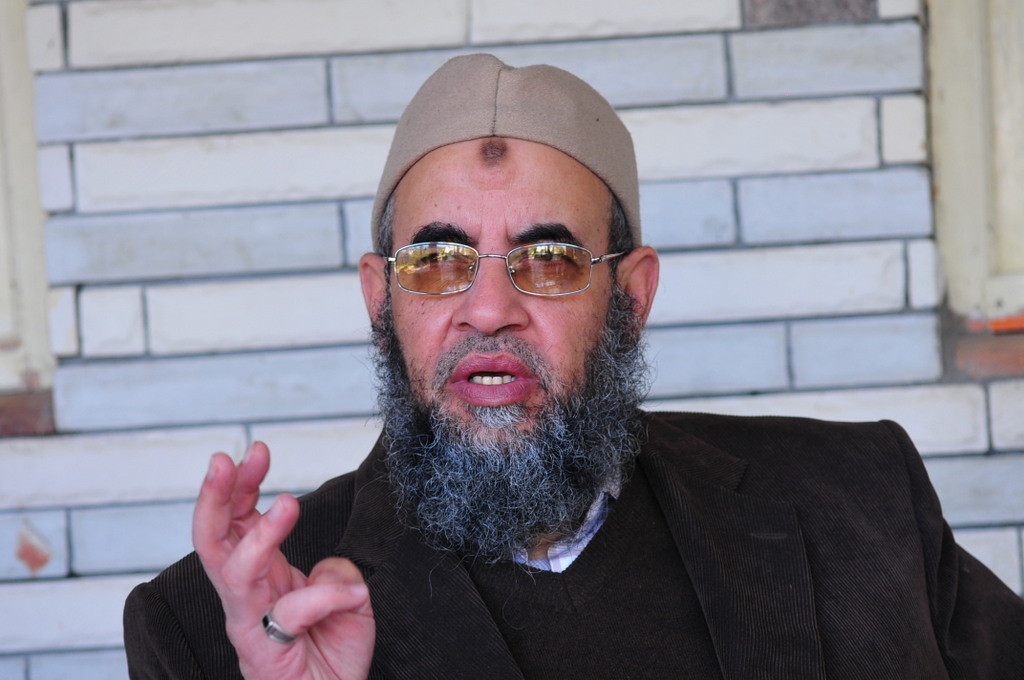Salman Rushdie marks the 20th anniversary of his Islamic death sentence this week having long escaped hiding and garlanded with awards and honors, but the fatwa still casts a long shadow.
While the Indian-born author has become almost a part of the British establishment as Sir Salman, the threat imposed for “The Satanic Verses has arguably influenced not only his life but that of many other artists.
The religious decree – which Iran said this week remains in force – was issued on Feb. 14, 1989 by Iran s then revolutionary leader Ayatollah Ruhollah Khomeini over the controversial novel, claiming it insulted Islam.
As a result, though The Satanic Verses was neither his first novel – Grimus received little literary acclaim when it was published in 1975 – nor his finest – Midnight s Children was named last year as the best winner ever of the prestigious Booker Prize – it has had the greatest impact on his life.
The fatwa forced the 61-year-old Rushdie to live largely in hiding under 24-hour police guard for almost a decade, though recent years have seen him become a fixture on the socialite circuit and appear in public more and more.
Married four times and with two sons, the Cambridge-educated author has over the years carved out a life for himself despite having to move house repeatedly and, at times, not even being able to tell his own family of his whereabouts.
He was forced to scale back his public appearances, though, when Britain awarded him a knighthood in 2007, sparking fury across the Islamic world.
Despite his return to normal life, academics and indeed Rushdie himself have argued that the wider implications of the decree have impacted on authors the world over, and the public at large as well.
For his part, Rushdie has said Western countries should have likened the fatwa to a prologue in a novel.
There was a tendency from everybody to believe that it was an isolated incident rather than an indicator or something wider, to believe that it was all my fault, he told The Times in January.
Referring to attacks on his home city of Mumbai in November, he added: We just saw in Mumbai a demonstration of the extraordinary barbarism that people are prepared to unleash on the world.
How many of these attacks do we need before we understand what’s going on?
The Satanic Verses, Rushdie s fourth novel which was published in 1988, was in part inspired by the life of Prophet Mohamed.
Many Muslims took offense principally with the title of the book, deemed blasphemous for referring to several verses which were allegedly interpolated into an early version of Islam s holy book the Quran and later removed.
Several academics have noted that Rushdie would struggle to convince a major publisher to release the book today, with writer and broadcaster Kenan Malik drawing parallels between Rushdie s work and The Jewel of Medina, a fictional account of the Prophet Mohamed and his wife Aisha.
Random House announced in August that it had cancelled publication of the book by American author Sherry Jones, saying it had been informed by credible sources that the book could incite violence.
Twenty years ago, even a death threat against Rushdie, (despite) the fact that he was forced to go into hiding … the fact that translators and publishers were killed openly, still (publishing firm) Penguin continued to publish the book, Malik told the BBC this week.
In 1991, Hitoshi Igarashi, the Japanese translator for the book was stabbed to death in Tokyo.
Now all it takes is an e-mail from an outraged academic to make publishers run for cover.
Coupled with that unwillingness to publish potentially controversial material has been a rise in self-censorship, which Rushdie himself has decried, arguing that individuals were now much more afraid.
There has been a chilling effect, he said at a conference in New York, according to Rediff News.
Now people think twice before they make … almost any remark about Islam. They think twice in case somebody decides to be offended.
Through it all, though, Rushdie has insisted that, knowing what he knows now, he does not regret writing the book, telling The Times: Of course I don’t, why would I?
I’m pleased that finally it’s being read like a book. It used to be taught on politics and religion courses; now it’s getting taught on fiction courses.
He has even mentioned the idea of turning his life story into a book of its own – one, perhaps, that would shed light on the life of a man whose life has had to be kept mostly secret for two decades.
Whatever he does, Tehran is still watching. It is natural that as long as a fatwa has not been annulled, it is still valid, said a foreign ministry spokesman, Hassan Ghashghavi, on the eve of the edict s anniversary.

